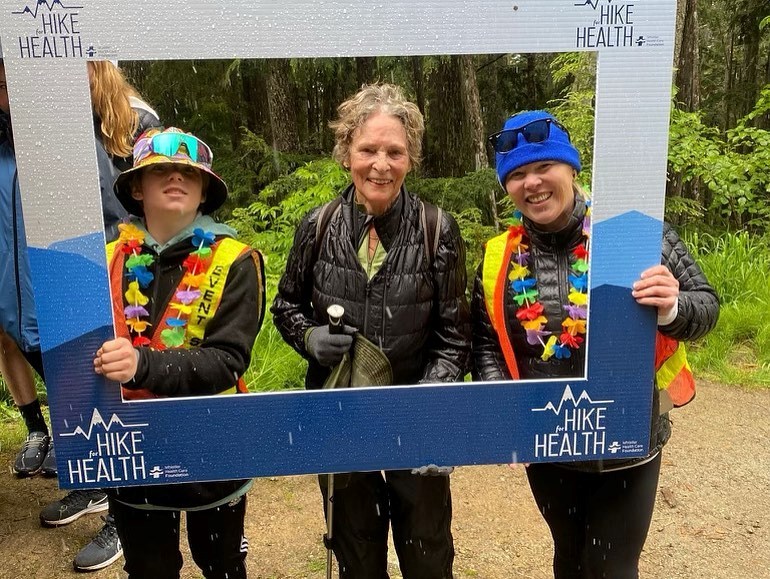Healthy hearts and minds are the goal for this year’s Hike for Health.
Organized by the Whistler Health Care Foundation (WHCF), the third-annual event aims to get hearts pumping for mental-health services in Whistler. Hikers meet at Blackcomb Base at 9:30 a.m. on June 16 and head up the Ascent Trail, a 6.2-km long leg-burner. There are three distances—Little Burn, Big Burn and Heartburn trails (dependent on snow melt)—and the event is accessible with an option to ride the gondola instead. Registration is now open and costs $40 for adults and $25 for children, and tickets include a day pass for sightseeing Whistler Blackcomb.
Jen Black, vice-chair of WHCF’s board of directors, said the choice for mental-health funding came from a clear need in the community and requests for funding from local service providers.
“We know that we have had some crises in this community, we've had losses, people struggling, and so let's earmark this event this year to make a real difference in the mental-health support and initiatives that are available to our community,” Black said.
The funds will be distributed after the Whistler Community Services Society (WCSS), local experts and counsellors determine how best to allocate the money.
The goal for this year is $100,000, and the WHCF is almost to the finish line, with about $70,000 raised already.
People with the means to help are invited to donate more and receive a tax receipt, with options from $500 all the way up to $10,000. Deemed “trailblazers,” signs recognizing the contribution will be placed along the trail and donors will receive a gift.
“It’s a lovely way to do that little bit more to help us reach our goal,” Black said.
The event is sponsored by the Touchet family and hosted by Whistler Blackcomb.
Hikers can also expect on-course activation this year, with musical surprises along the trail.
Mental health in Whistler
WCSS executive director Jackie Dickinson is also slated to speak at the event.
The social-service provider offers front-line services in Whistler through an outreach team, while also connecting people with services and resources related to housing, finances and food security.
People aged 30 to 39 make up the biggest percentage of those accessing WCSS' mental-health services, and the same group is also the highest percentage accessing the food bank. Dickinson pointed to structural causes.
“Lots of groups of people are struggling with low wages, a lack of affordability, not being able to potentially consider homeownership in their lifetime, not being able to think about extending families due to the high cost or limited access to daycare,” Dickinson said. “Those are just a few surface-level topics as to why this demographic of people are accessing more support, but they can't be dismissed.”
Another factor that can influence mental health in Whistler is the paradise paradox, according to longtime local counsellor Greg McDonnell, with extreme sports providing both a healthy outlet and the potential for unhealthy escapism.
“It could exist on the continuum of tools that we use to numb ourselves. It could also exist on the continuum of health, so it's how we engage with it,” he said.
One strategy McDonnell stressed was understanding individual needs and how people can prioritize their health.
“I think all individuals have to contemplate what they need to really take care of themselves—being socially connected, having purpose and meaning, living deliberately, managing drugs and alcohol, those are some key protective factors for our mental health,” he said.
One way to take care of individual needs is by spending time within community this Father’s Day during Hike for Health.
Read more here.




